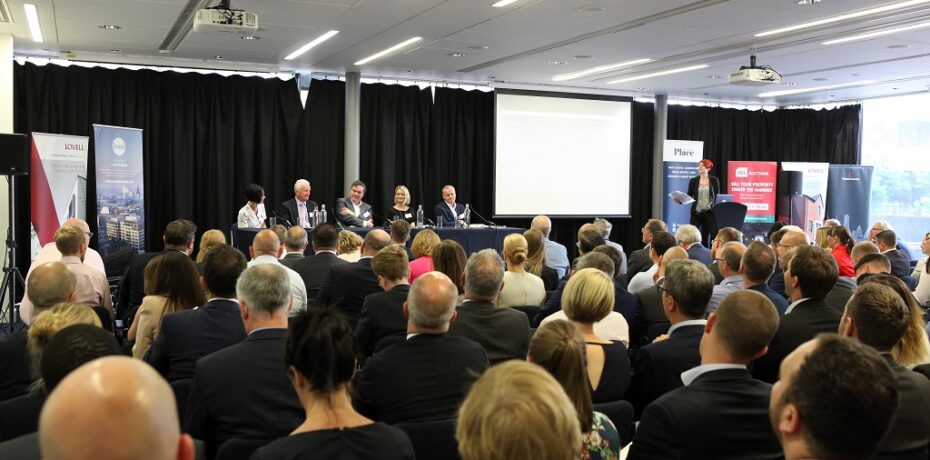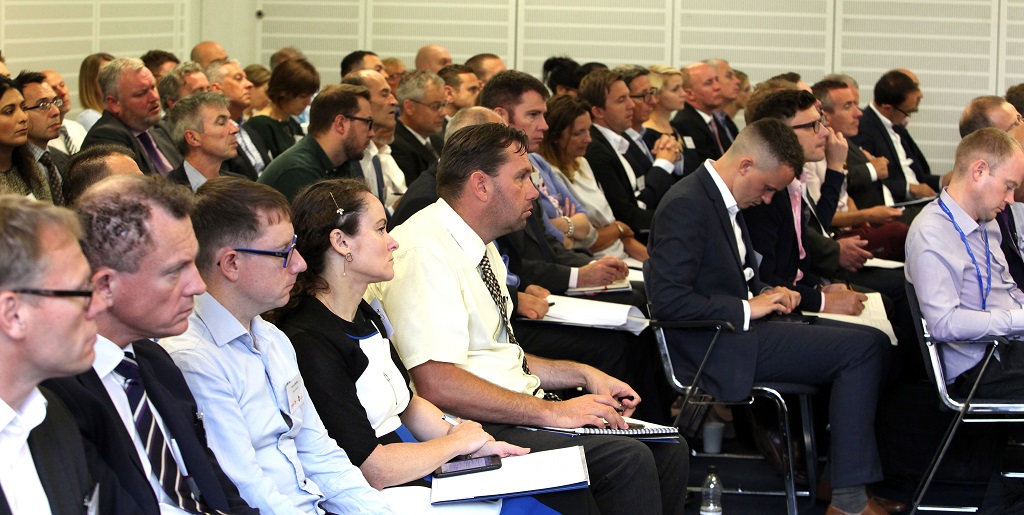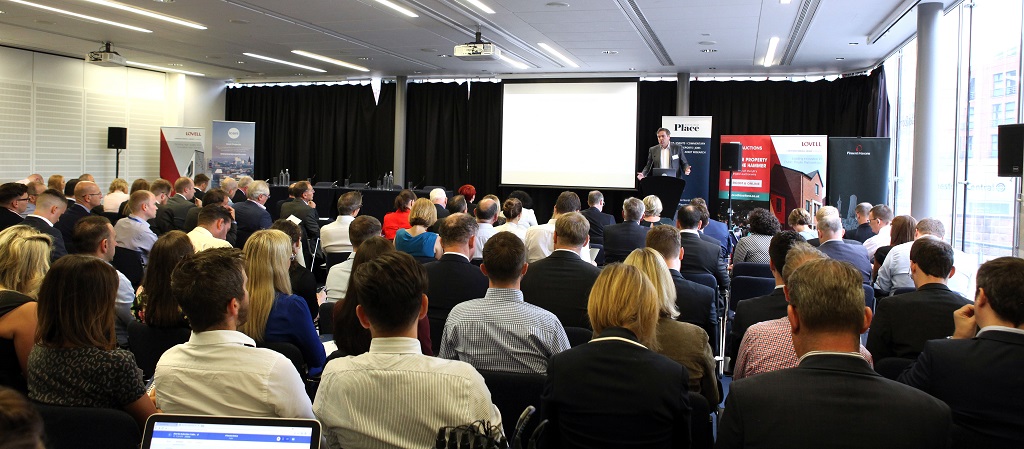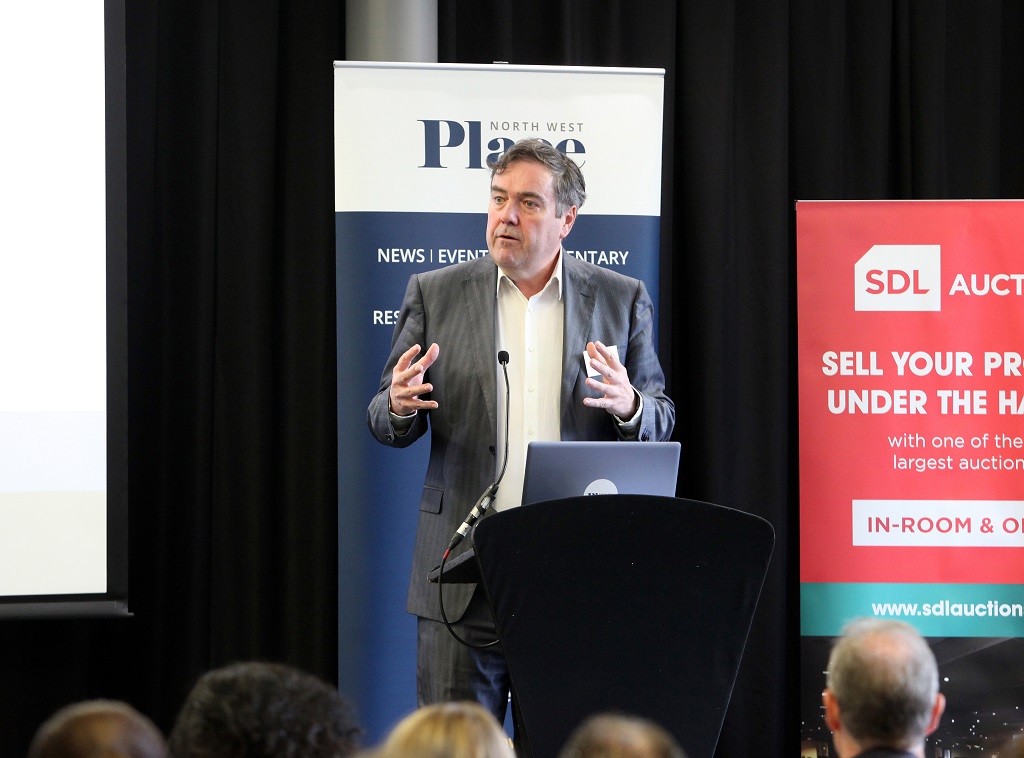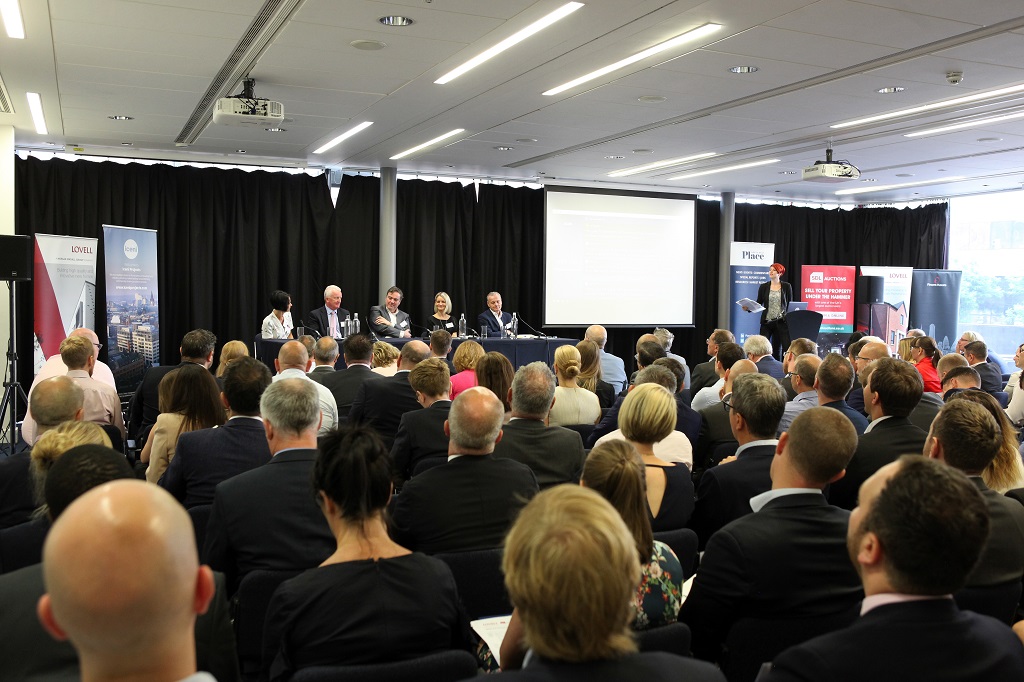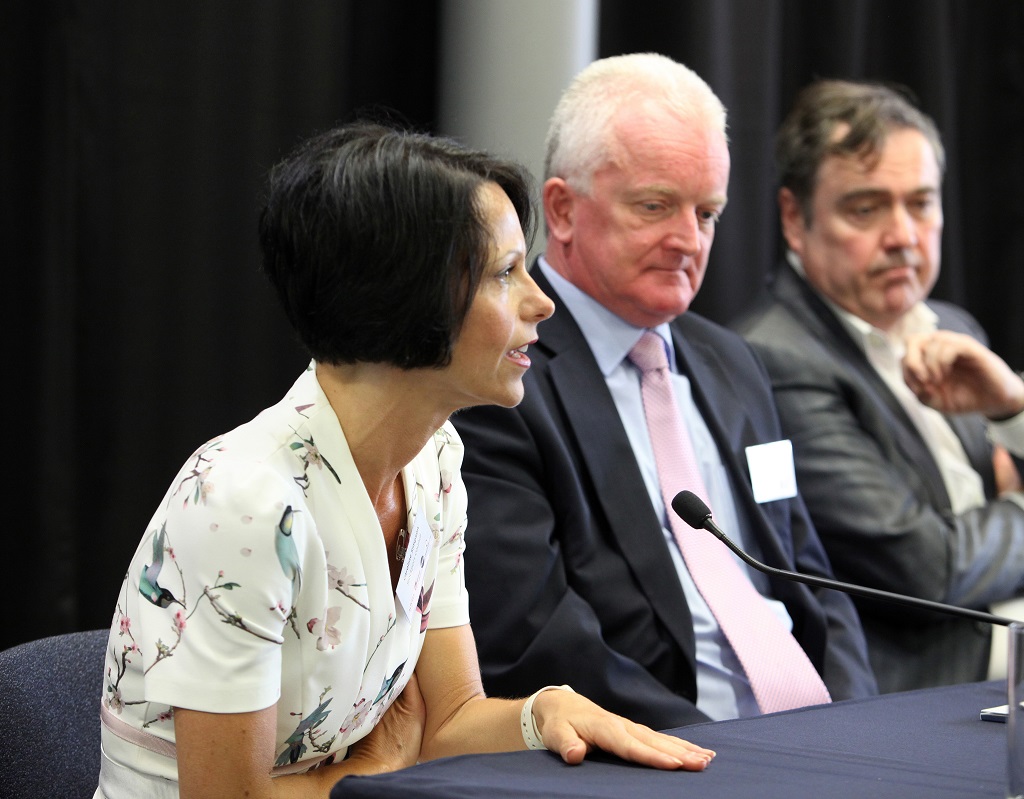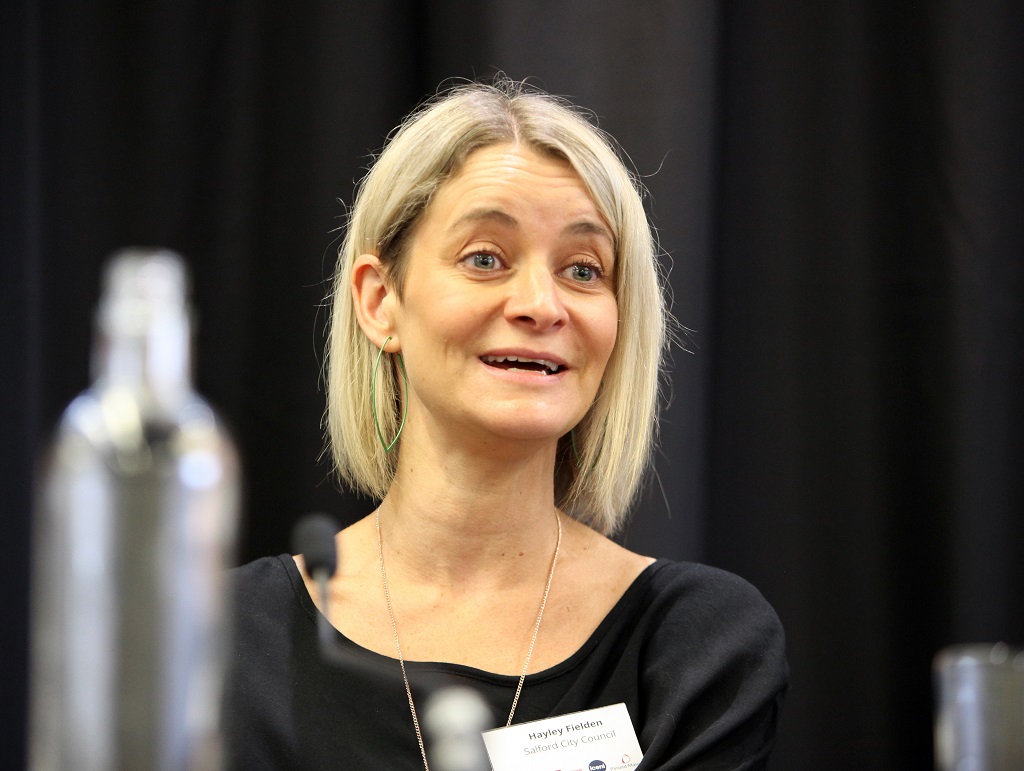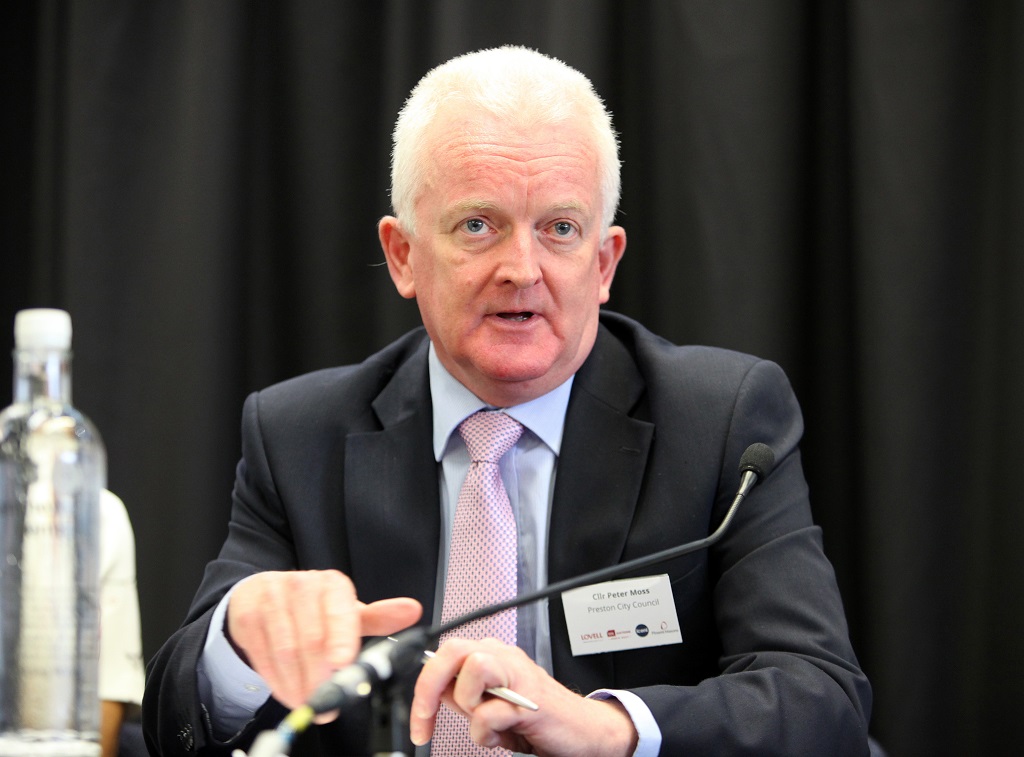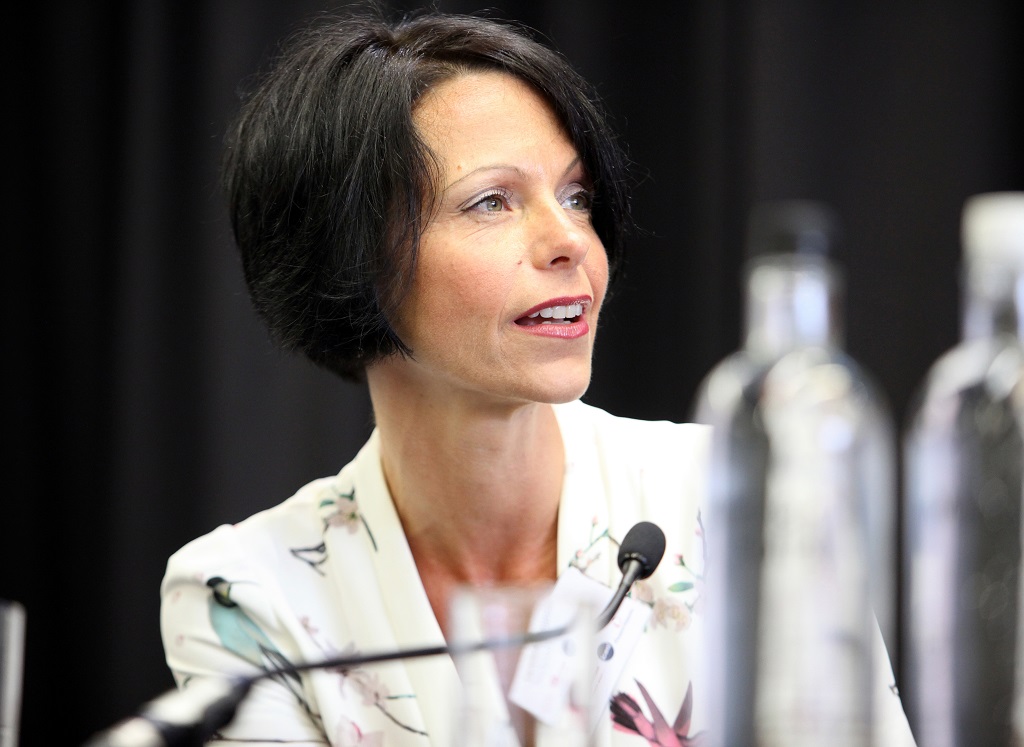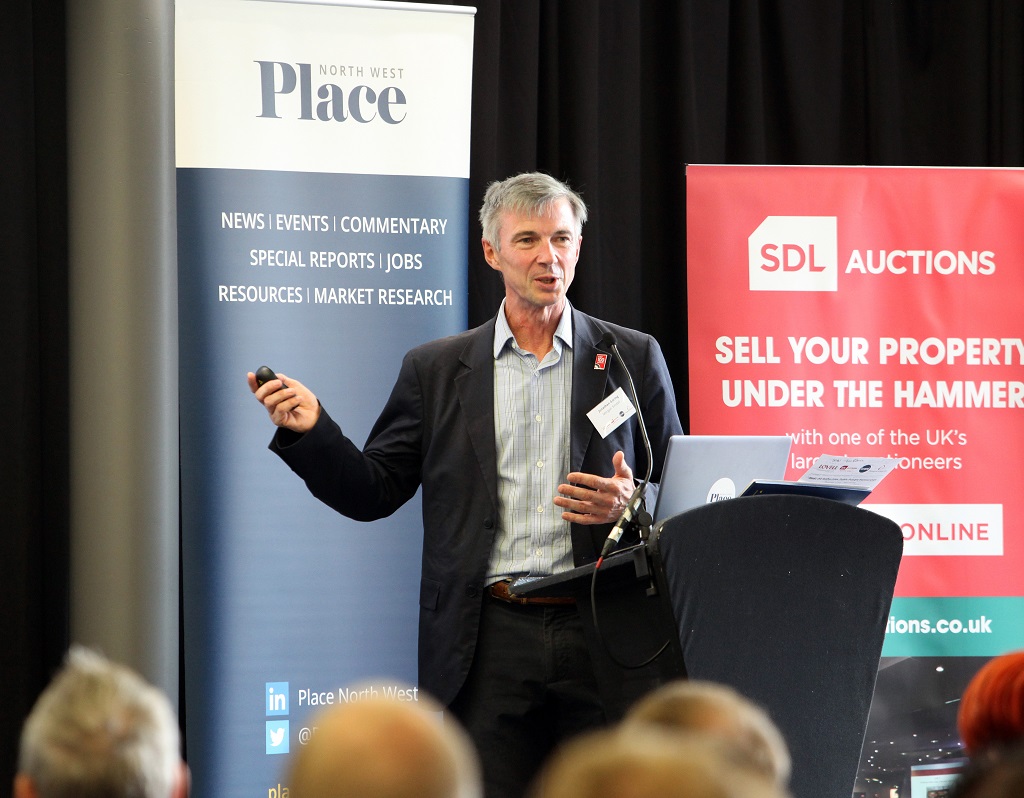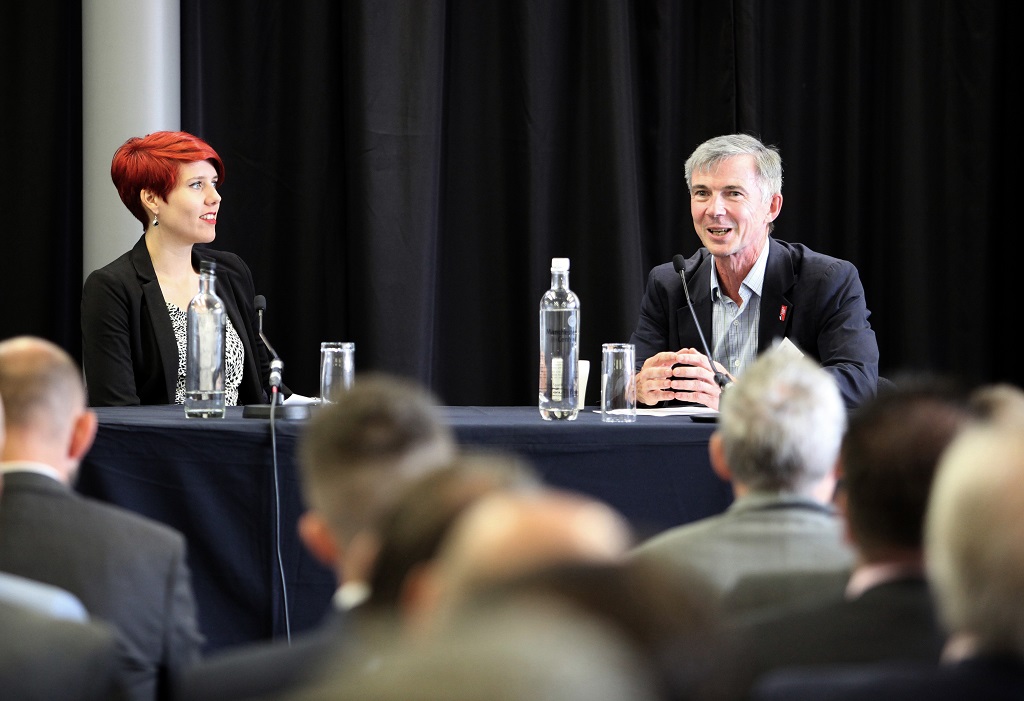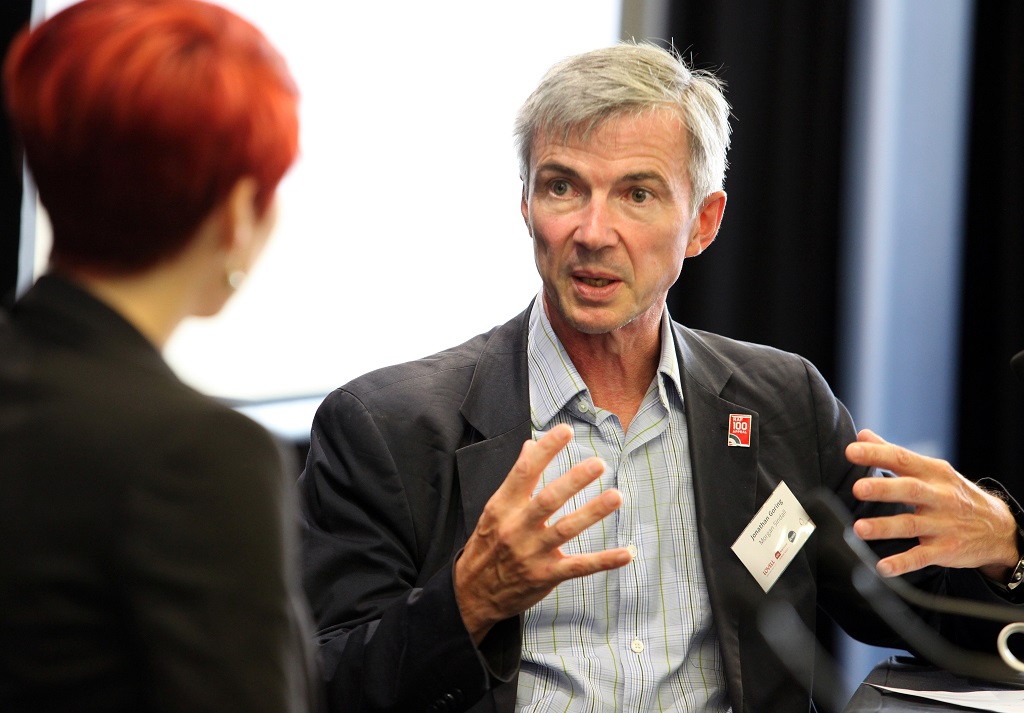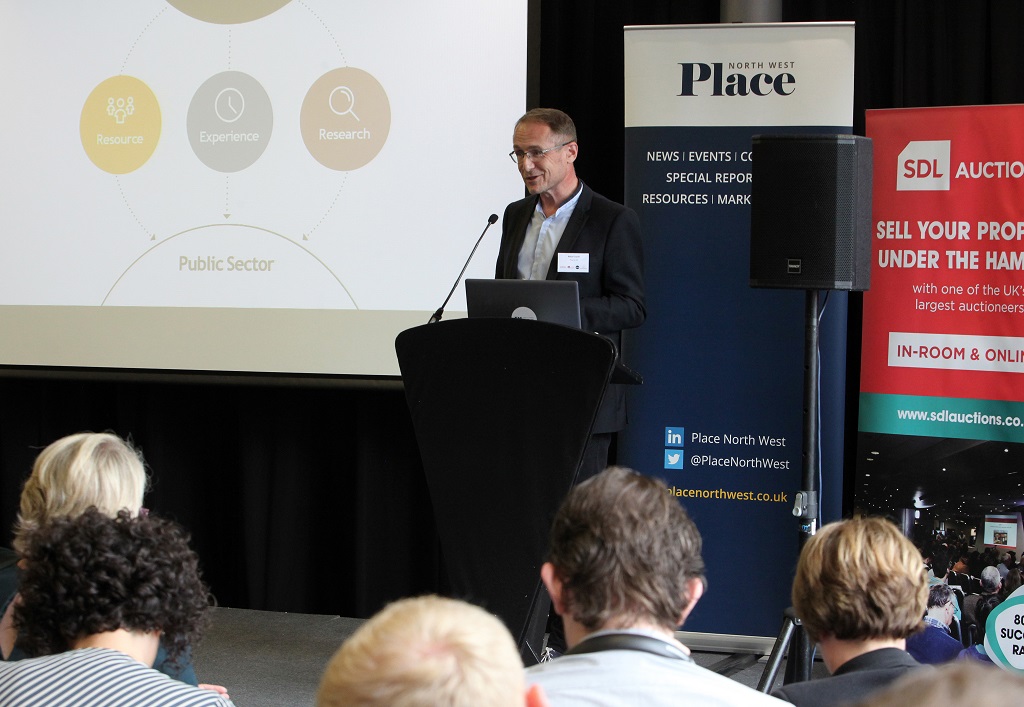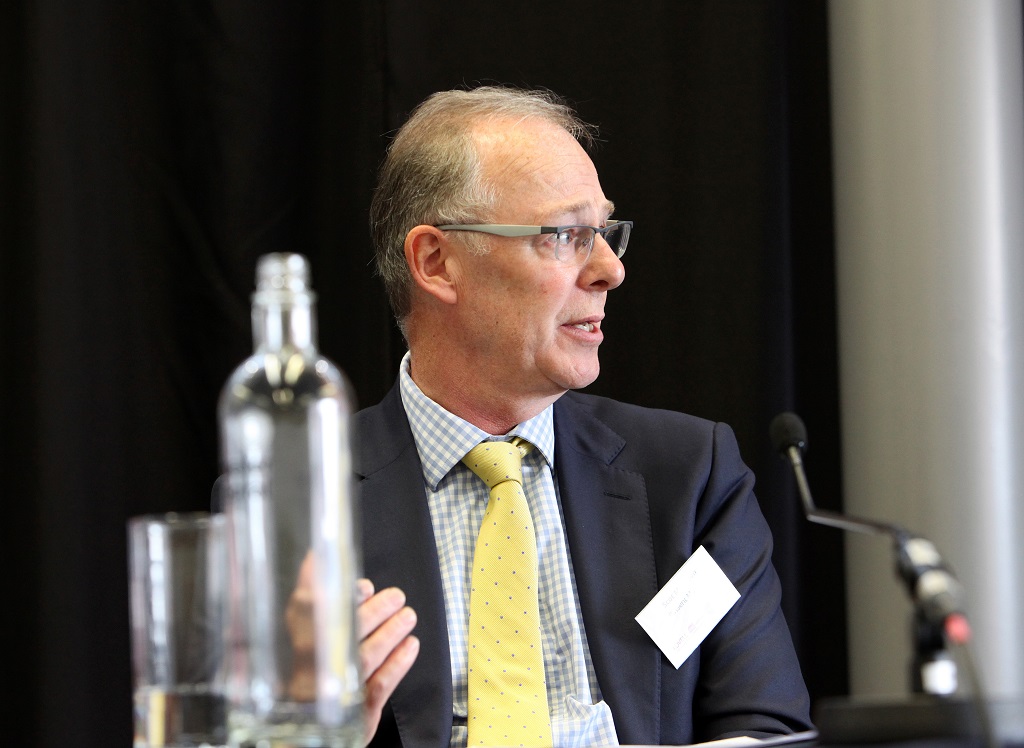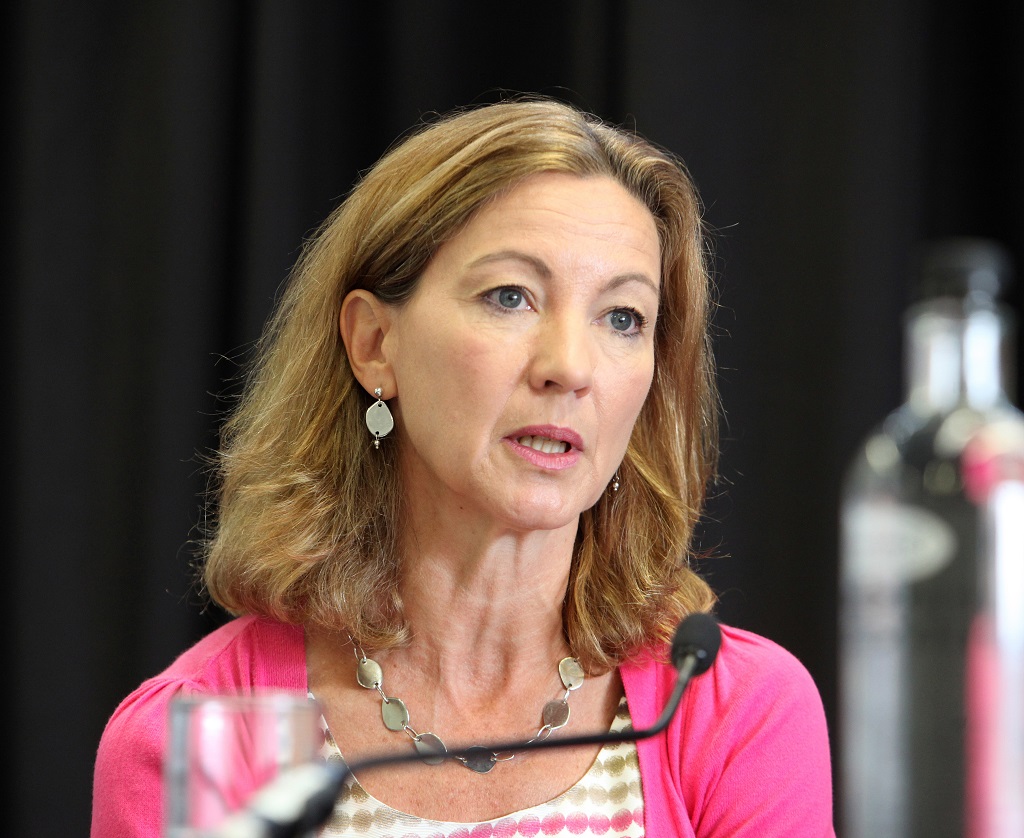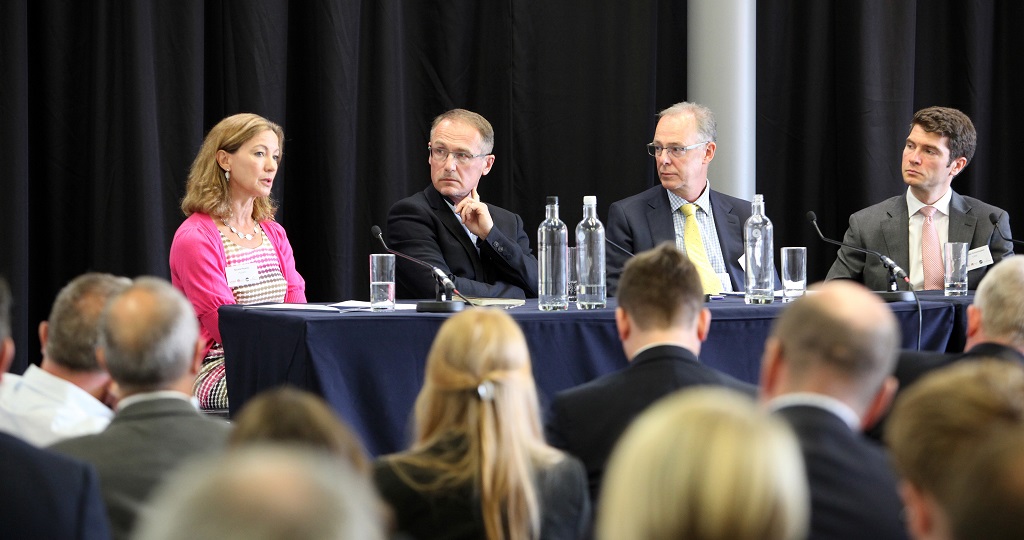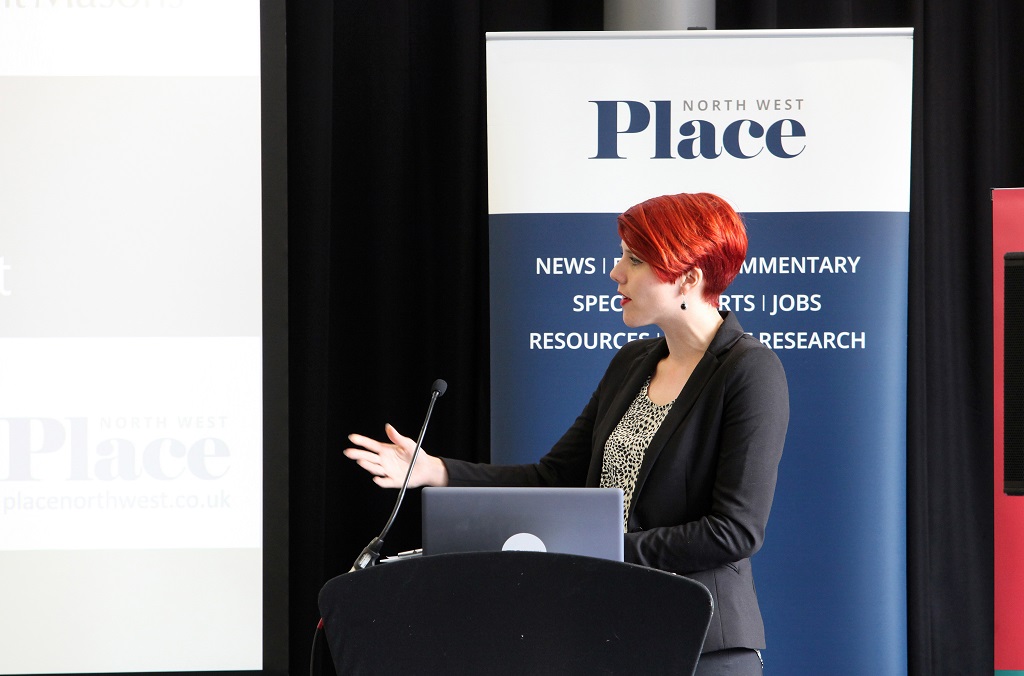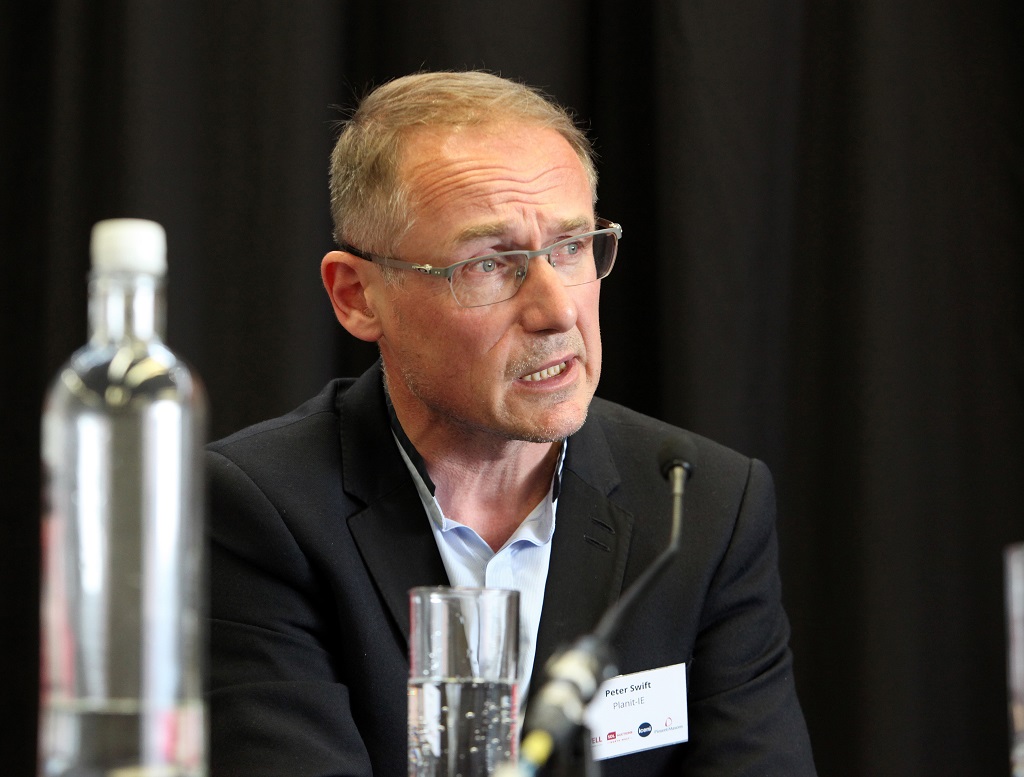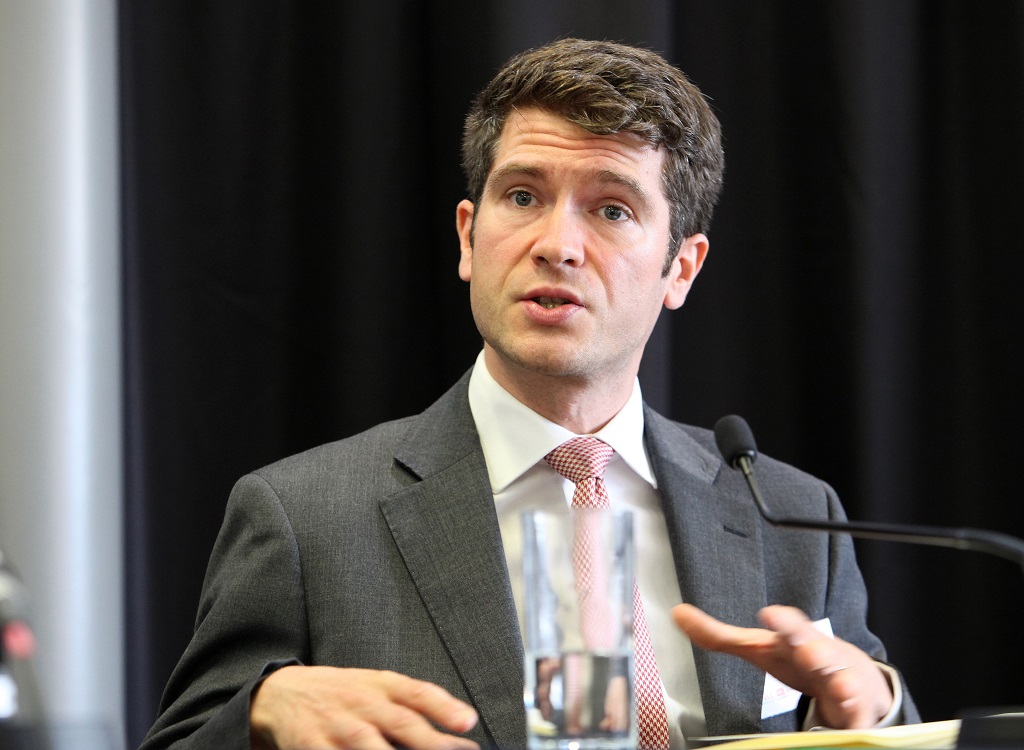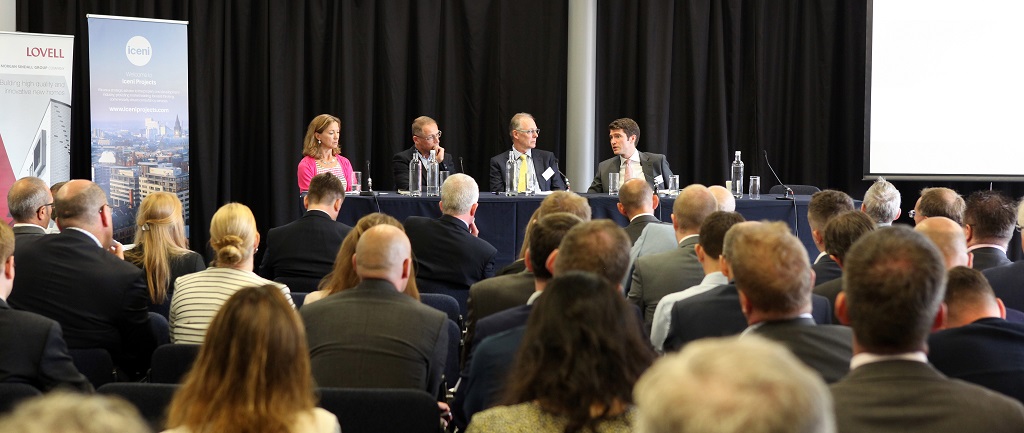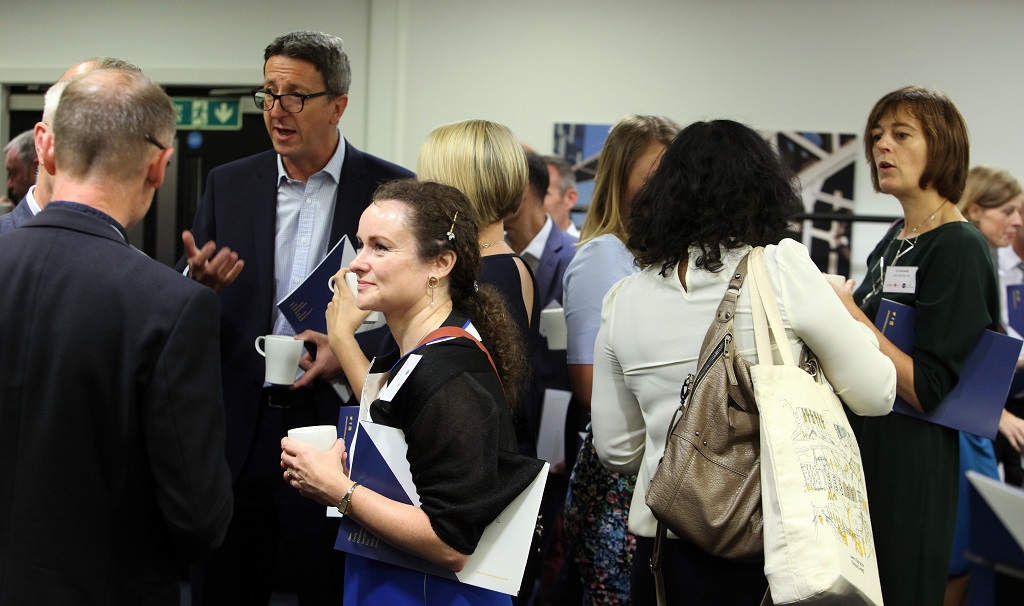Event Summary
Meet the Authorities: Public-Private Partnerships | Summary, Slides & Photos
Public-private partnerships will continue to flourish, but challenges around procurement, choosing the right partner, and developing the right sites still remain, according to panels from both the public and private sectors, speaking at Place North West’s Meet the Authorities event.
Scroll down to see slides + gallery
More than 150 people attended the conference at the Manchester Central Convention Complex, which was sponsored by Iceni, Lovell, Pinsent Masons, and SDL Auctions.

Speakers included Eric Robinson, chief executive of Wirral Council; Caroline Simpson, director of place, Stockport Council; Pete Swift, managing partner at Planit-IE; Cllr Peter Moss, deputy leader of Preston City Council; Hayley Fielden, group leader for regeneration at Salford City Council; Jonathan Goring, partnerships director at Morgan Sindall; Scot Morrison, partner at Pinsent Masons; Andy Farrall, executive director of economic growth, regeneration & environment at Warrington Council; Nicola Hewes, partner at Purcell; and Andrew Antoniades, senior director at CBRE Capital Advisors.
Wirral’s Local Plan
Wirral Council chief executive Robinson opened the event with a presentation outlining the upcoming opportunities in the borough as it looks to put in place its Local Plan.
- Wirral is one of three authorities in the country that does not have a Local Plan, but is now proposing a major review of green belt land, which will see the proportion of green belt in the borough drop from 46% to 32%
- The “big thing” for the plan was to transform Birkenhead, with a “fantastic opportunity” in place to reverse the decline that has impacted the area for nearly 50 years
- He said the area needed a “younger, more vibrant offer” particularly around Hamilton Square, with options around Birkenhead including a new civic centre, leisure centre, offices, and residential, as part of the Wirral Growth Company’s plans being delivered in partnership with Muse
- Reflecting on the area’s relationship with Liverpool, Robinson said: “Birkenhead should be Brooklyn, not another Manhattan”
- However, Robinson said the Local Plan would look to adopt a “brownfield-first” approach to development, and would look to benefit “the whole of Wirral”
- The chief executive, who has been in post since 2015, said the council had become “much more commercial and business-like in its approach” following changes at the top, and had taken steps to improve skills within the council including doubling its planning team
Robinson then joined a panel of Simpson, Moss, Fielden, and Farrall to discuss the role of local councils in regeneration and their partnerships with private businesses.
- All the panellists agreed that generating revenue streams would be vital for councils moving forward as Government funding is cut
- Farrall argued local authorities need to be “permissive and promotional” to provide “clear strategies so the private sector knows what to do and where to do it”
- Moss harked back to Preston’s failed venture with Grosvenor Estates and Lendlease, which was pulled in 2008 after two main anchor tenants backed out. He said the authority has learned from this experience and is using the “Preston model”, where money is spent on local suppliers with anchor institutions to encourage development
- Simpson said that while revenue streams were important, Stockport’s key objective when acquiring property and developing sites was for placemaking, which in turn would generate business rates and development
- Robinson argued that public sector organisations shouldn’t be “embarrassed” to get involved with redevelopment: “It’s wholly appropriate for local government to have a stake in developing places”
- Fielden said a council’s role should be “enabling projects to get under way” and argued that by doing this, local authorities “get more say in how areas are developed”
- Asked by the audience why all five local authorities were working with Muse as developer, all the panellists pointed out they were also using a wide range of private-sector partners, including Keepmoat, Domis, and Renaker in Salford
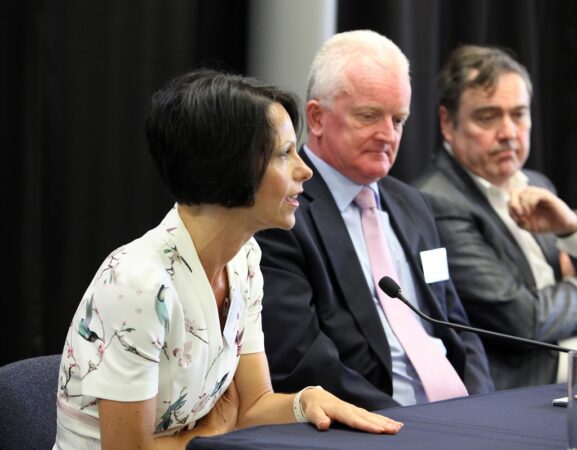
Caroline Simpson, Stockport Council
Carillion collapse “blindingly obvious”
The panel was followed by a presentation by Goring, who outlined how public-private partnerships can be a success. He spoke about Lovell’s partnership in Miles Platting, which is due to draw to a close in the coming years, where the company has seen 60% growth in value in the last five years.
“That sat on our balance sheet as a big red thing, but we’re still there and it’s now a successful development,” he said. “If we were behaving like a normal PLC we would’ve bailed out, but we stuck in there.”
He said both parties need to be “open and honest about what’s being put in” to the partnership with “50/50 equity the best way to be”. He added: “Customers from down south don’t understand marginal viability; they don’t know what difficult means.”
Goring then took part in a question-and-answer session with Place North West editor Jessica Middleton-Pugh, in which he said Carillion’s collapse was “blindingly obvious” with the company’s “terrible payment terms and bad culture”.
“Step one for a local authority is to look not just at the balance sheet, but the people and the behaviours,” he said. On how public and private sectors can work together with the skillsets available, he added: “Local authorities are far better at understanding assets and consultation than the private sector is.”
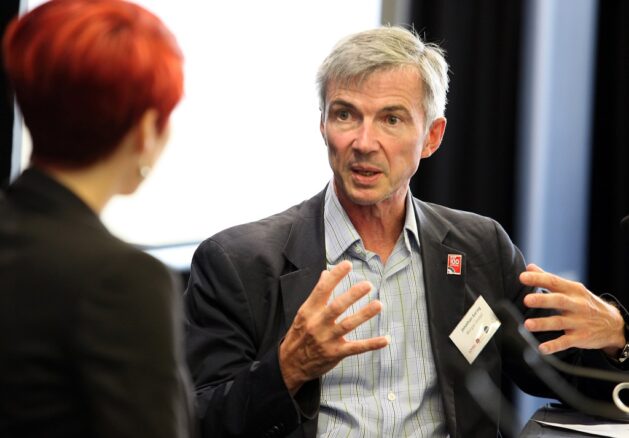
Jonathan Goring, Morgan Sindall Group
Pete Swift of Planit-IE then presented to the audience on working with the public sector as a champion for regeneration projects.
- Skills have been lost from within the public sector “which may never return”, he said, with the consultants’ role being “to plug that gap and to see ourselves as part of a team, rather than providing services to one company”
- He outlined the importance of research, evidence, and shared experience to convince local authorities to push ahead with projects: “There’s no point in saying public realm looks lovely and that’s it; you need to show it creates footfall and business rates”
- Swift cited some of Planit-IE’s projects where it has acted as “a flag-bearer” for regeneration, including in Altrincham; at Daresbury; and in Tameside
- At Liverpool Waters, where Planit-IE is acting as a consultant, Swift described discussions with UNESCO over the city’s World Heritage Site status as “the most painful, confusing, and frustrating process you could ever deal with” with “layers and layers of bureaucracy”
- However, the success of maintaining that status was “the ultimate embodiment” of consultants being “a silent partner; one which gets the message right and talks, rather than waving a sword around and threatening everyone”
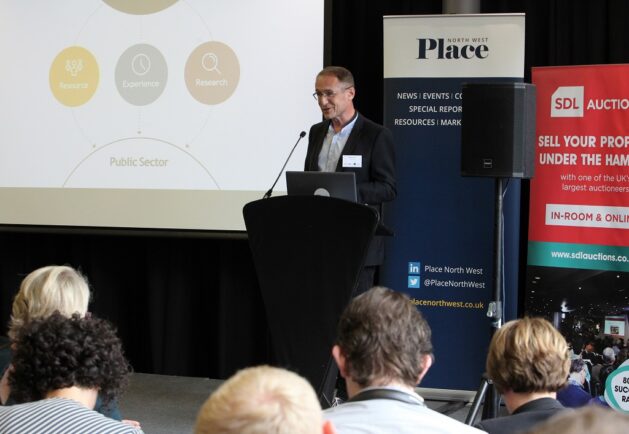
Pete Swift, Planit-IE
Swift then joined Antoniades, Morrison, and Hewes for a panel discussion.
- Morrison said the key point to ask when procuring a private-sector partner was “what you want to achieve: embed that in your procurement strategy, and in the evaluation methodology, so you get the answer to the question you ask”
- Swift said the procurement process could “often hinder quality development” and criticised the focus on cost for not always delivering the best value
- Hewes outlined Purcell’s role at Manchester’s £330m Our Town Hall project, where the council had a “clear vision” from the start and identified early “the need to hire an exceptional project leader from the private sector”
- Antoniades said that in the south investors are “very jealous of how public meets private up in the north”, and added: “It’s a shame banks aren’t more active up here; they think differently, and find it difficult to back projects unless they are totally de-risked
- Swift said that engagement with public and private partners had changed significantly: “A decade ago masterplans didn’t engage with local business and people, and in some cases didn’t even engage with the local authority”
To view the presentations from the morning, visit Place North West’s Slideshare page
Click any image to launch gallery
- Eric Robinson, Wirral Council, presenting
- Eric Robinson, Wirral Council
- From left: Caroline Simpson, Stockport Council, Cllr Peter Moss, Preston City Council, Eric Robinson, Wirral Council, Hayley Fielden, Salford City Council, Andy Farrall, Warrington Council, chaired by Jessica Middleton-Pugh, Place North West
- Caroline Simpson, Stockport Council
- Cllr Peter Moss, Preston City Council
- From left: Caroline Simpson, Stockport Council, Cllr Peter Moss, Preston City Council, Eric Robinson, Wirral Council, Hayley Fielden, Salford City Council, Andy Farrall, Warrington Council
- Andy Farrall, Warrington Council
- Hayley Fielden, Salford City Council
- Cllr Peter Moss, Preston City Council
- Caroline Simpson, Stockport Council
- Jonathan Goring, Morgan Sindall Group
- From left: Jessica Middleton-Pugh, Place North West, and Jonathan Goring, Morgan Sindall Group
- Jonathan Goring, Morgan Sindall Group
- Pete Swift, Planit-IE
- Scot Morrison, Pinsent Masons
- Nicola Hewes, Purcell
- From left: Nicola Hewes, Purcell, Pete Swift, Planit-IE, Scot Morrison, Pinsent Masons, Andrew Antoniades, CBRE Capital Advisors
- Jessica Middleton-Pugh, Place North West
- Pete Swift, Planit-IE
- Andrew Antoniades, CBRE Capital Advisors
- From left: Nicola Hewes, Purcell, Pete Swift, Planit-IE, Scot Morrison, Pinsent Masons, Andrew Antoniades, CBRE Capital Advisor, Jonathan Goring, Morgan Sindall Group


